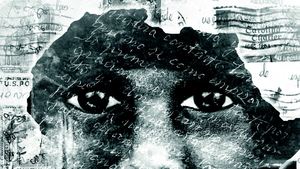Rapper BG - real name Christopher Dorsey - has been ordered to provide US authorities with copies of any songs he writes for as long as he is on supervised release from prison. Officials will then consider whether his lyrics are “inconsistent with the goals of rehabilitation”.
The court order comes as a compromise after prosecutors initially sought an outright ban preventing the rapper “from promoting and glorifying future gun violence/murder” through his music. BG’s lawyers argued that such a ban would be unconstitutional, violating his right to free speech.
The case adds to growing concerns in the music community about US prosecutors increasingly impacting on the free speech of rappers, including by using lyrics as evidence in court.
Dorsey, a former member of the 1990s hip hop group Hot Boys alongside Lil Wayne and Juvenile, was released to a halfway house last year after serving time in prison for illegal gun possession. In February this year his rehabilitation continued as he began a two-year federal supervision period.
Since his return to music, he has had a number of run-ins with probation officers, initially over collaborations with fellow rappers Boosie and Gucci Mane, both of whom have prior felony convictions. This is because people on supervised release are required to refrain from “associating unnecessarily” with anyone with a prior felony conviction.
However, in those cases, Dorsey’s lawyers were able to show that both collaborations had been approved by officials while he was in the halfway house.
It was after this that the dispute over Dorsey’s lyrics began. Prosecutors said lyrics in the rapper’s new music were “inconsistent with the goals of rehabilitation”, and asked the judge to put restrictions on Dorsey’s creative outputs.
The rapper’s lawyers hit back, arguing that such a restriction would be “an unconstitutional prior restraint of free speech”. Judge Susie Morgan said that that argument “may be” correct, but agreed that prosecutors’ concerns regarding Dorsey’s rehabilitation were also “legitimate”.
The judge’s compromise allows authorities to review Dorsey’s lyrics before he produces or performs them. If they have concerns, they can then request further amendments to the rapper’s supervised release terms via the courts.
As CMU has previously reported, there is increasing concern about US prosecutors using lyrics as evidence in court against musicians, and in particular rappers.
Constitutional experts argue that this breaches the free speech rights of defendants. The issue can disproportionately affect rappers, because people are prone to incorrectly assume that rap lyrics are more rooted in reality.
While California has passed restrictions on lyrics being cited in this way in criminal prosecutions, lyrics can still be used in other states, as seen in the Young Thug case in Georgia.
People leading the campaign against the use of lyrics in criminal prosecutions will be closely following the developments in this BG case too, which may set other important precedents for how creative expression is treated within the criminal justice system in the US.

